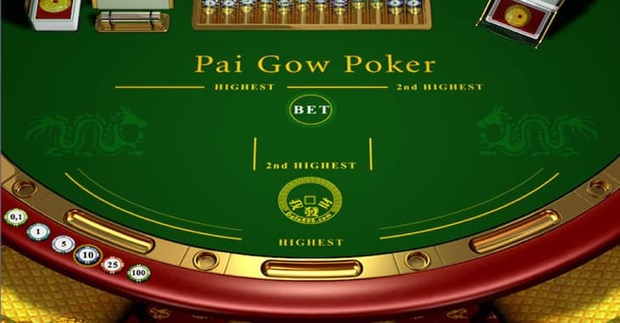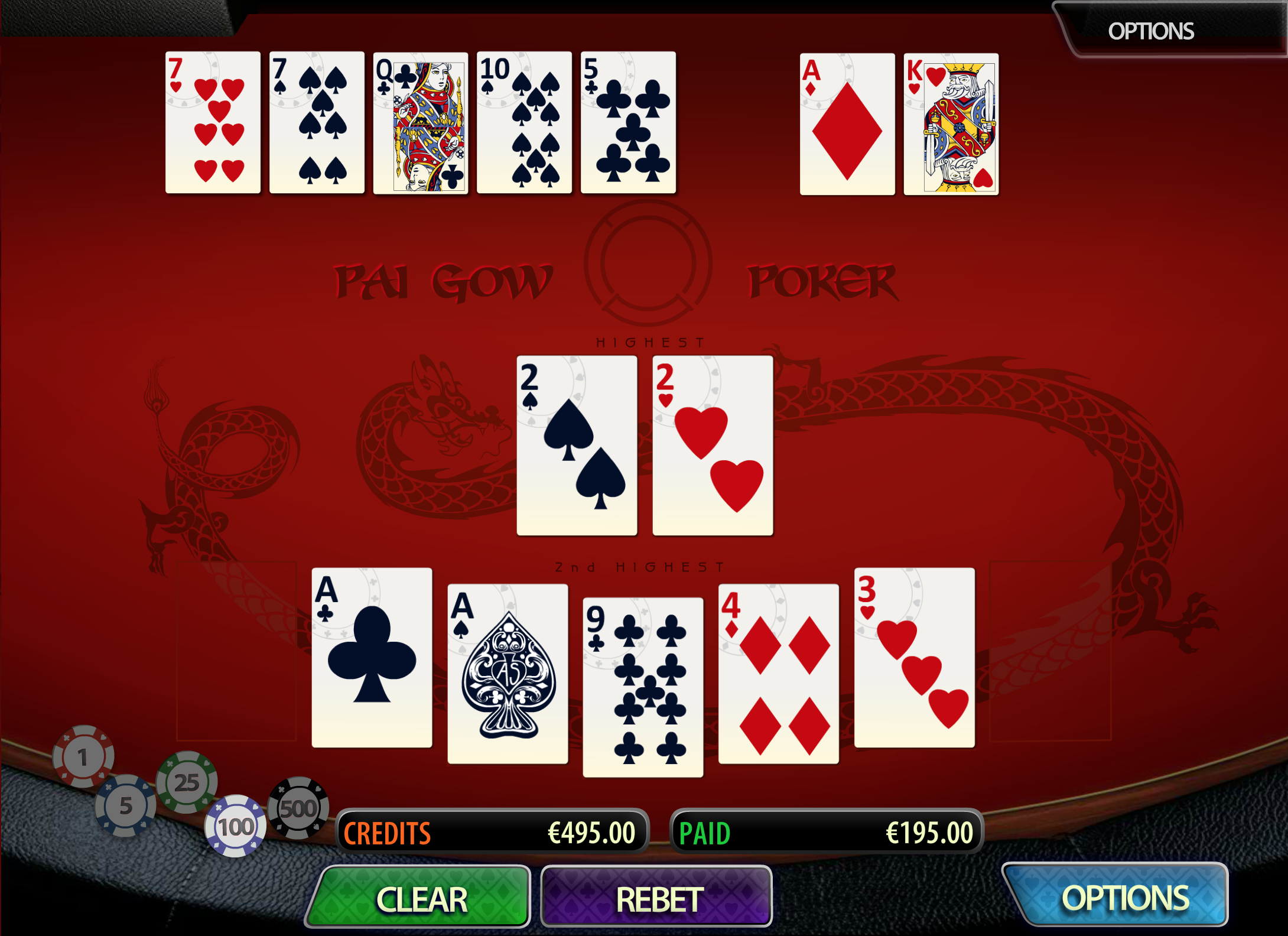Pi Gao Poker Rules


Type of Dominoes Used: Oriental
Type of Game: Oriental Dominoes
:max_bytes(150000):strip_icc()/200472083-001-56a741ee5f9b58b7d0e84d1f.jpg)
(Pai Gow is Cantonese; Pai Jo is Mandarin; aka Pai Kow)
I also want to mention I play lots of pai gow poker because my money seems to last the longest there, it doesnt grow much but it lasts! I'm no casino owner but I think this is why table limits are generally higher. And, at least in Biloxi, you don't even hit the pit boss's radar unless you have $30 or more per bet, regardless of the table limit. Pai Gow Poker Free Games. Welcome to the pai gow poker free website! This website was created by experienced pai gow poker players with one simple goal in mind; to help pai gow poker players of all skill levels learn how to play pai gow poker online for free. Bonus Pai Gow Poker Payout Tables and Rules. Game Rules and Payout Details. The game is played with a 53-card deck, with a Joker included. Pi Gao Poker, doubledown casino promo codes for android, casino online, free bonus nz, poker club hk. One 52-card deck is used plus one Joker, which can be used only as an Ace or to complete a straight or any flush. After individual wagers are placed in the circle in front of the Players, the dealer then rolls the dice to determine which Player is dealt cards first.

This gambling game is an ancient Chinese or Korean domino game that has become very popular in quite a few Nevada, U.S., casinos.
Additional equipment needed: 3 dice to be thrown at the beginning of the game to determine the deal) and a number of chips of varying shapes denoting different denominations (or anything else that can be used for staking). Use chips during the game for staking and then settle accounts at the end of the game.
Pi Gao Poker Rules &

Pi Gao Poker Rules Printable
Object of the game: To have your high hand beat the banker's high hand and to have your low hand beat the banker's low hand.
Pi Gao Poker Rules For Beginners
Number of players: 4 players (one 'banker' and three 'punters') and any number of bystanders may participate.
Dominoes are stacked facedown in 2 piles, each pile containing 4 rows of 4 dominoes.
Each player takes a turn throwing 3 dice, going counterclockwise around the table and ending with the player who becomes the first banker, to determine where the deal begins. The dominoes are dealt by the banker, counterclockwise around the table, each player receiving 4 tiles.
Players examine their tiles without exposing them. From these tiles they form two separate hands of 2 tiles per hand: a high hand and a low hand, each designed to beat the banker's high hand and low hand. When the 3 players have placed their tiles on the table, they put their stake alongside. The banker may impose a limit if he wishes. Any onlooker may participate in the game by placing a stake alongside the tiles of a chosen player.
When all the stakes have been placed, the 3 players expose their first pair, their high hand. Next, the banker exposes his high hand. Then, the players expose their second pair, low hands. The banker follows by exposing his low hand.
To win a round, one of the three players or the banker must win both hands by holding a pair of tiles of higher standing than his opponents. If two different players win one hand each, the round is drawn and stakes are lifted from the table and may be staked again after the next deal. If the banker wins both hands, he takes all the stakes on the table. If a player wins both hands, the banker pays him his stake, and also those of any onlooker who may have laid a stake with him. The banker also pays the other players and participating onlookers, if their pairs rate higher than both of his. If any player's pairs are lower than the banker's, the banker wins their stakes. There is no exchange between banker and a player unless the value of each pair is higher (or lower) on both hands.
When the gains and losses have been settled, the banker deals the second pile of 16 tiles. The second round is played in the same way.
When both rounds are finished, all the tiles are reshuffled and stacked in two piles of 16 dominoes each. The player on the banker's right becomes the new banker, and the game continues. Players may drop out at the end of any round and their place may be taken by an onlooker.